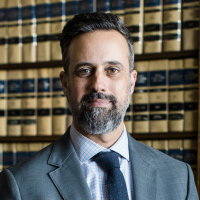Albany RICO Act Lawyer, California
Sponsored Law Firm
-
 x
x

Click For More Info:
-
Law Office of James Dal Bon
95 S Market St 3rd Fl San Jose, CA 95113 » view mapSanta Monica Employment Law Employment Representation
The Law Offices of James Dal Bon are poised to help during this difficult time, call today and speak with an Attorney right away.
800-913-2581  James Dal Bon San Jose, CA
James Dal Bon San Jose, CAAttorney At Law - CA, 1992
University of San Francisco, J.D. - 1991
 Frequently Asked Questions
Frequently Asked QuestionsEnter text from site here
 Contact UsEmail or Call 24/7
Contact UsEmail or Call 24/7Call today for your initial consultation.
Not enough matches for Albany RICO Act lawyer.
Below are all Albany Criminal lawyers.
Seth Morris
✓ VERIFIEDCriminal, Felony, Personal Injury
When the legal system fails you, you can’t leave yourself or your child at the mercy of a judge and 12 jurors. Seth Morris has saved his clients fro... (more)
Seth P. Chazin
Computer Law, Criminal, Constitutional Law, Civil Rights
Status: In Good Standing Licensed: 36 Years
Seth Paul Chazin
Divorce & Family Law, White Collar Crime, DUI-DWI, Criminal
Status: In Good Standing
FREE CONSULTATION
CONTACTElisabeth Anne Semel
Litigation, Criminal, Constitutional Law
Status: In Good Standing Licensed: 49 Years
Laura Suzanne Robinson
Education, Landlord-Tenant, Dispute Resolution, Criminal, Administrative Law
Status: In Good Standing Licensed: 36 Years

 Frequently Asked Questions
Frequently Asked Questions Contact UsEmail or Call 24/7
Contact UsEmail or Call 24/7

